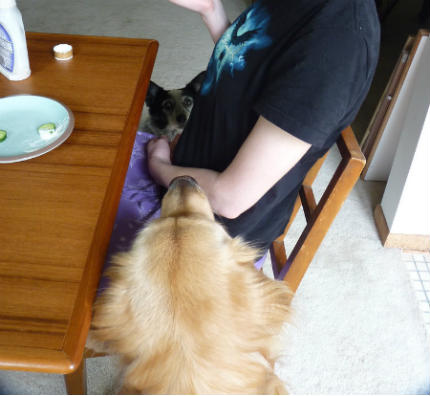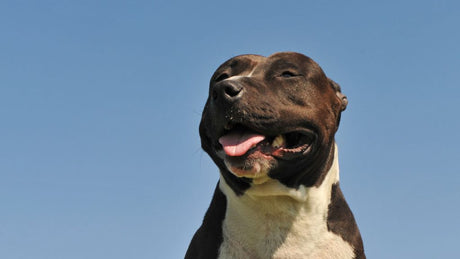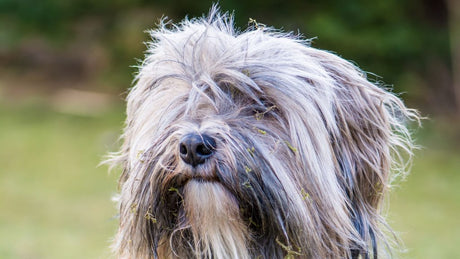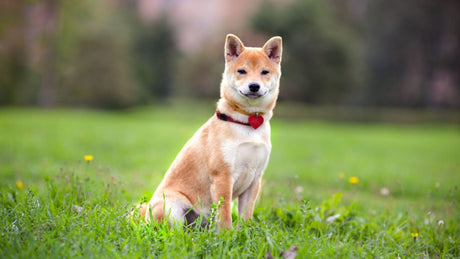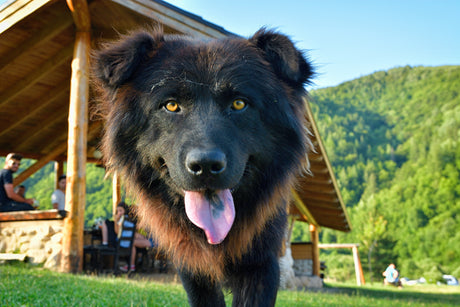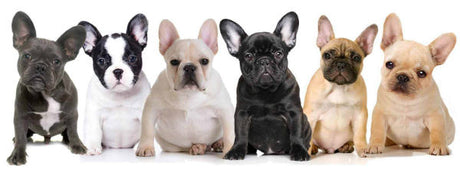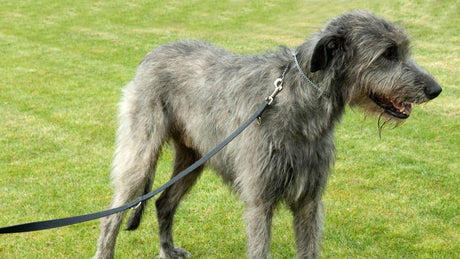If you have or have had dogs, you know how important it is to dedicate ourselves to their care. To prevent them from being affected by any disease, it is necessary to complete the respective vaccinations and check-up appointments with the veterinarian. In addition, it is important to know the different diseases to which they are susceptible. By knowing its symptoms we can be alert to any changes in our pet.

Among the diseases that can affect dogs is the so-called Kennel Cough . This can be identified with some ease as it causes the dog to keep emitting a constant coughing sound. We notice it because it is not a common custom for them. When faced with this symptom, it is best to spend a few hours of observation, attentive to confirm that it is something delicate. We must immediately go to the veterinarian who, after confirming that the animal is indeed suffering from the disease , will proceed to apply the necessary treatment to attack it before it becomes complicated.

To both prevent and help recovery, it is necessary to provide a good diet. It is very important to offer good quality nutrients. During the flu period, we must offer him clean water and provide him with a quality and balanced diet. We highlight the Blue Wolf Salmon dry food as a food, a great ally to strengthen the dog's immune system, with great digestibility, the fatty acids in the fish help maintain the optimal condition of the skin and reduce inflammatory processes in general. A great advantage of salmon feed is that it is combined with rice, leaving aside corn and other cereals. In addition, it contains vegetables to enhance the vitamin intake.

If we are in charge of an animal shelter, or as volunteers, it is advisable to know kennel cough . So that, in this way, we can be alert with the dogs that are in our care. In these places the risk of contagion increases exponentially , so it is vital to prevent it from spreading. If it is diagnosed and attacked in time, with proper treatment and care, it is not a disease that will lead the dog to death. It is also not a disease that is spread to humans, being exclusive to dogs.
What is kennel cough?
It is a disease caused by the bacteria Bordetella Bronchiseptica , which attacks the respiratory system of dogs . In addition, the disease can increase its severity when a second bacteria acts: Mycoplasma spp . This disease is also called barking cough, canine infectious tracheobronchitis or canine respiratory complex . The bacteria from barking cough lodge in the dog's trachea and bronchi , making it difficult for them to breathe. For this reason, they desperately search for air, as if they were drowning, generating the coughing sound characteristic of this disease.

Affected dogs open their mouths as much as they can, trying to get air into their lungs. By doing that, we think they are choking on something they ate. This is the first sign of the disease . What comes after the dog retches is the expulsion of vomit, usually white and foamy, which is what confirms that the dog is infected . Kennel cough is characterized by a dry, strong cough . It is really exasperating to observe a dog that suffers from it, as it makes a great effort to cough and expel vomit.

It is more common for kennel cough to affect dogs found in boarding homes, daycare centers, stray dog shelters, special pet parks, dog hotels, etc. This is because it is a highly contagious infectious disease . Dogs become infected by contact with the bacteria which is found in the secretion or vomit expelled by dogs infected with barking cough. This means that if your dog is infected, you should not take him to places where other dogs are, in order to prevent the spread of kennel cough . Furthermore, it is necessary to be very attentive when walking the dog and it encounters vomiting in the street with the characteristics described above. Well, our pets by nature inspect what they find on the street. For this, it is very important to educate your dog from a puppy.
Symptoms of barking cough
When we have had dogs for years, we know their behaviors and we learn to identify when something is not right, because they do not act as they normally do. This is when we turn on the alerts and can detect something strange that may be happening.

If you notice any of these symptoms of barking cough, you need to take your pet to the vet as soon as possible:
- Difficulty breathing . The dog keeps panting to get air into its lungs.
- A strong and very dry cough .
- They begin to secrete mucus more and more frequently. In some cases, discharge can be observed in your nasal passages.
- Sometimes they present greenish phlegm .
- Coughing usually causes vomiting that is white and foamy in consistency.
- It is not common for them to present a fever . However, in isolated cases, fever affects them, being a sign that the infection has advanced, affecting other organs.
- They tend to arch their body as if looking for a way to expel an object that is blocking the airway.
- If the dog vomits yellow, it is not kennel cough.
- They may sneeze more than usual.
- Something that may confuse us is that, with this disease, the dog usually does not lose its appetite. They continue to eat and drink water as normal. In some cases, losing their appetite is a sign that their throat hurts when eating.
- With barking cough your eyes can also be affected and eye discharge may begin.
- In some cases, dogs experience fatigue , especially when the disease is advanced.
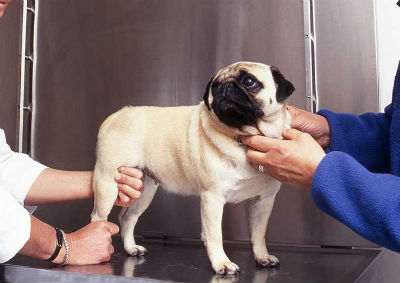
If kennel cough is not treated in time, the dog can end up with pneumonia, which can be much more delicate for our pet, and can lead to death.
How to avoid the spread of Kennel Cough
Whenever we have a pet dog we must be aware of the place where they sleep and make sure it is clean. In addition, we must prevent them from sleeping directly on the floor, since the cold can cause diseases due to bacteria or caused by the cold itself in their body; kennel cough is sometimes spread that way.

When we go out to the streets and parks where they can play and share with other dogs, we must be aware of what they eat and prevent them from picking up things from the ground. Likewise, keep an eye on the other dogs, if they have any symptoms of sneezing or coughing , this may be a sign that they are infected with the bacteria that causes kennel cough . Take your dog regularly to the vet for check-ups to rule out diseases that often do not present a lack of appetite or fever, this being the case of kennel cough.

Be very attentive to the dog's grooming, bathing it in the corresponding period. There are vaccines to prevent canine infectious tracheobronchitis , so it is recommended to consult your veterinarian about giving your pet this vaccine. These vary according to their presentation, which can be in nasal drops or injections. Consult with your veterinarian the dosage and frequency at which you should administer this vaccine to your dog.
Treatment of Kennel Cough
If your dog is diagnosed with kennel cough, your vet will most likely prescribe:
- Antibiotics, commonly Doxycillin, which is an antibiotic that attacks the bacteria that cause this disease, preventing its spread. The veterinarian will be in charge of indicating the dose that you should give the dog, since this will depend on the weight of the dog. It will also indicate the duration of the treatment.
- He will also prescribe some cough syrup for veterinary use, to reduce the dog's discomfort. This will depend on the weight and evolution of the animal.
- In some cases, if inflammation is detected, anti-inflammatories will be prescribed.
- Avoid taking the dog out, keep it in a quarantine period, so that its recovery is faster and thus avoid infecting other dogs.
- Comply with all the treatment indicated by the veterinarian to ensure a complete recovery that does not represent short-term relapses.
- It is not advisable to bathe the dog until it recovers from kennel cough. Avoid bathing him for at least a week after his recovery, to avoid relapses.
Remember that a pet is another member of the family that has adopted it, its health is as important as that of any other member of the family unit. Having a dog is a commitment with great rewards. Be careful about the food you provide, only with special foods for them will you ensure the nutrients, vitamins and minerals they require. Keep in mind that these would look from race to race. Take him to his medical appointments in the corresponding period to perform the pertinent check-ups and reviews and prevent illnesses or attack them in time. Another disease that you should prevent your dog from contracting is leishmaniasis, learn about it in our blog.

Remember, if our dog is a healthy and happy animal, there will be many moments of fun and joy together with all the members of the family. When we decide to adopt or buy one of our pets we commit to caring for and protecting a life. If you want to know more about the health of dog breeds, we recommend: Czechoslovakian Wolfdog and Border Collie Dog.
You may also like:

